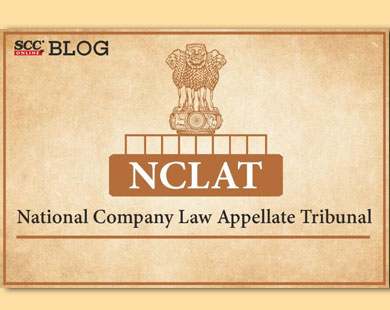National Company Law Appellate Tribunal | Dismissing the appeal, Ashok Bhushan, J., Kanthi Narahari (Technical Member) and Barun Mitra (Technical Member) held that when a Resolution Plan is approved by the CoC, it is presumed that the approval was given to a viable and feasible plan.
In the instant matter, in the Corporate Insolvency Resolution Process (CIRP) of the Corporate Debtor voting was done in the presence of CoC and authorized representative of the home buyers and resolution plan was adopted. An application filed by 68 home buyers to replace the Resolution Professional in the CIRP of the Corporate Debtor and reject the revised resolution plan as being not conforming and on-compliant of S. 30(1) of the Insolvency and Bankruptcy Code, 2016. Relying on Priya Puri v. Debhashish Nanda, CA (AT) (Ins) No. 906/2022, the NCLT dismissed the application vide order dated 26.09.2022. An appeal was filed by the appellants challenging the impugned order passed by the NCLT.
The appellants contended that the judgment of Priya Puri (Supra) is not applicable in present case as the facts and circumstances are different and Adjudicating Authority should have considered the objections filed by the appellants.
The appellants questioned the feasibility and viability of the Resolution Plan as no instructions and approval of the home buyers about different items of the agenda, were obtained by the Authorized Representative before voting and no approval of CoC was obtained with regards to Resolution Plan.
The Tribunal relied on Jaypee Kensington Boulevard Apartments Welfare Assn. v. NBCC (India) Ltd., (2022) 1 SCC 401, where it was held that the democratic principles of the determinative role of the opinion of the majority have been duly incorporated in the scheme of the code and the minority homebuyers have to necessarily sail with the majority within the class.
The contention of the appellants that Authorised Representative has not obtained opinion of the homebuyers on different agenda items, the Tribunal observed that it is the duty of the Authorised Representative to obtain instructions to vote for the majority for any agenda item where CoC obtain votes.
Dismissing the appeal, the Tribunal observed that an issue related to viability and feasibility of the resolution plan is a commercial wisdom and when such an issue arises, it is presumed that CoC has given approval to a viable and feasible plan. The Tribunal held that it cannot interfere with the commercial wisdom.
“…when the CoC approved the Resolution Plan in its commercial wisdom, it is presumed that the approval was given to a viable and feasible plan. The Resolution Plan being approved, this Tribunal also cannot interfere with the commercial wisdom. Approval of the CoC suggest that the plan is viable and feasible.”
[Rajesh Kumar v. Rabindra Kumar Mintri, 2022 SCC OnLine NCLAT 1604, decided on 15-12-2022]
Advocates who appeared in this case:
Mr. Dhruv Dewan, Mr. Kshitj Mudgal, Mr. Prayay Sharn and Mr. Ravilochan Daliparthi, Counsel for the Appellants;
Mr. Apporv Agarwal, Ms. Riya Thomas and Mr. Manav Goyal, Counsel for the Respondent No. 1;
Mr. Adhish Sharma and Mr. Nitin Pandey, Counsel for the Respondent No. 2.
*Ritu Singh, Editorial Assistant has put this report together.







